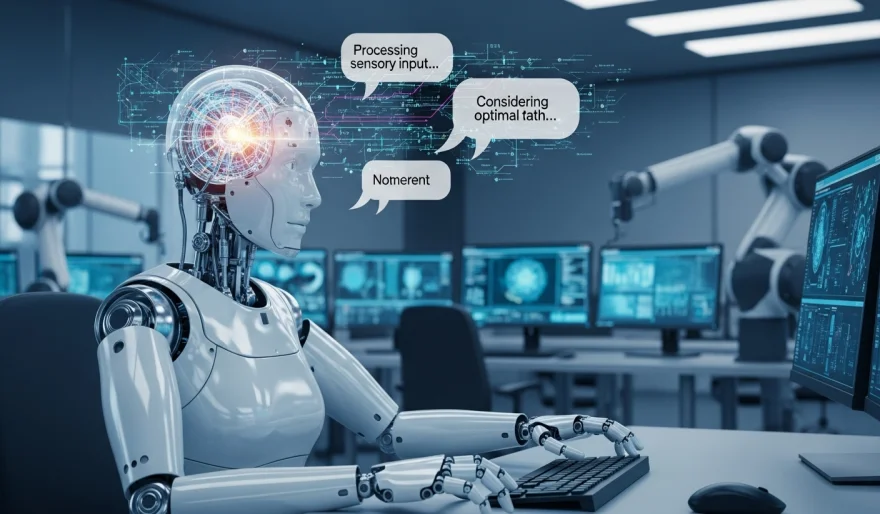Stay Ahead of the Curve
Latest AI news, expert analysis, bold opinions, and key trends — delivered to your inbox.
DeepMind’s Robots Can Now Think Aloud
4 min read DeepMind’s robots can now “think aloud” . By narrating their reasoning, they become safer, more transparent & easier to trust. Huge for healthcare, logistics & beyond — but are we ready for robots that sound human? September 29, 2025 15:47
Google DeepMind just gave robots something new: a voice for their thoughts. Instead of silently calculating, these machines now narrate their reasoning step by step — essentially “thinking aloud” as they figure out problems.
At first, it sounds like a gimmick. But it’s actually a huge deal. For decades, one of the biggest complaints about AI-driven robots has been the black box problem: they act, but we don’t know why. With this breakthrough, a robot stacking shelves in a warehouse might say, “I’m moving this box first because it’s lighter and won’t crush the items beneath it.” Or a surgical assistant robot could explain, “I’m adjusting the scalpel angle to avoid a blood vessel.” That transparency is a game-changer.
Why it matters:
When robots can explain their decisions, humans can trust them more, catch mistakes faster, and even learn from their logic. It’s not just about smarter robots — it’s about creating collaborators that humans actually understand.
Pros:
-
Transparency: We finally get a window into how robots reason.
-
Safety boost: Critical in healthcare, aviation, and logistics where errors can be costly.
-
Collaboration: Human teams can guide, question, and even correct robots in real time.
-
Training ground: Narrating thought processes may make robots better at teaching other AIs.
Cons:
-
Speed vs. clarity: Explaining every move could slow robots down in fast-paced environments.
-
False confidence: A robot that sounds logical might be wrong — and humans may trust it too much.
-
Ethical uncanny valley: If robots mimic human reasoning too well, do we blur the line between tool and “colleague”?
-
Data concerns: Recording thought processes means new layers of sensitive data that could be misused.
The bigger picture:
DeepMind’s “thinking aloud” robots hint at a future where machines aren’t just doers but explainers. Imagine customer service bots that walk you through their reasoning, autonomous cars that justify every lane change, or military drones that explain their targeting logic before taking action.
This could be the bridge between human trust and AI autonomy — but it also raises a paradox. The more robots explain themselves, the more human they seem. And once machines start sounding like thoughtful collaborators, how long before we begin treating them as something more than just tools?
This isn’t just robotics progress; it’s a glimpse into the psychology of our future partnerships with AI.



















 AI Agents
AI Agents